Here are my favorite examples of 3 stanza poems categorized:
- Easy 3 stanza poems
- 3 stanza poems with 3 lines
- 3 stanza poems with 4 lines
- 3 stanza poems with 5 lines
- 3 stanza poems about life
So if you want plenty of examples of 3 stanza poems, then you’re in the right place.
Let’s get started!
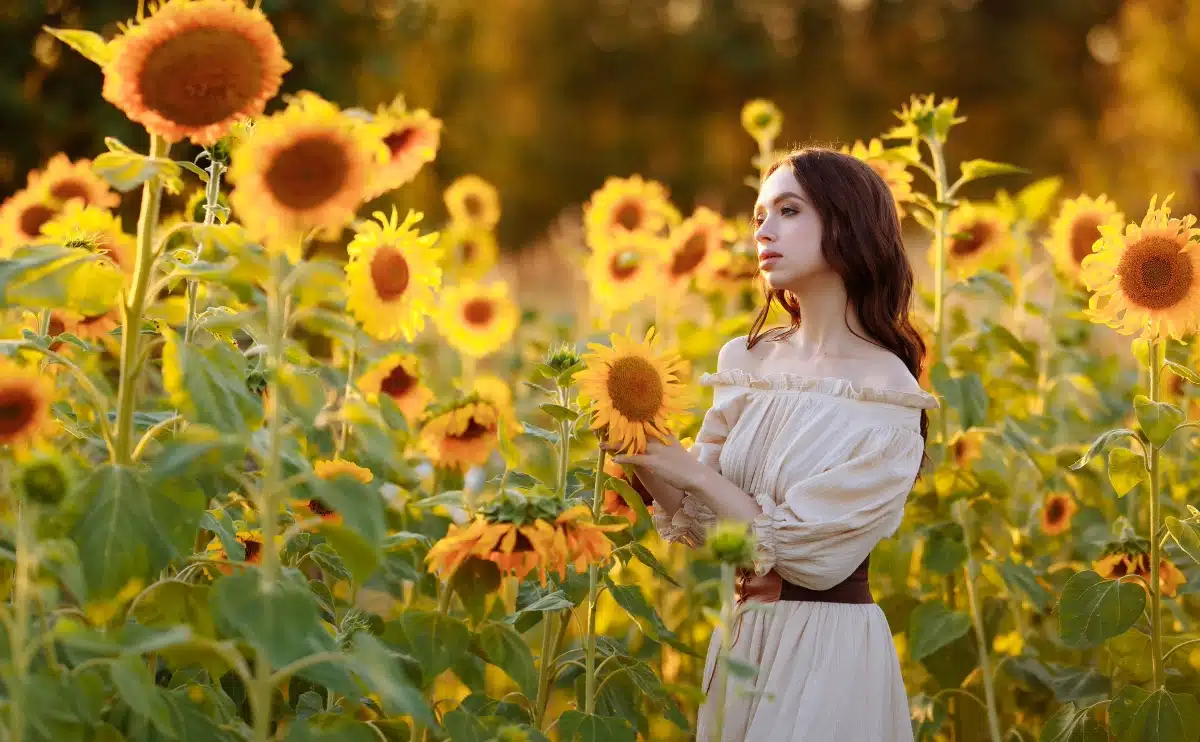
Delightful Examples of 3 Stanza Poems
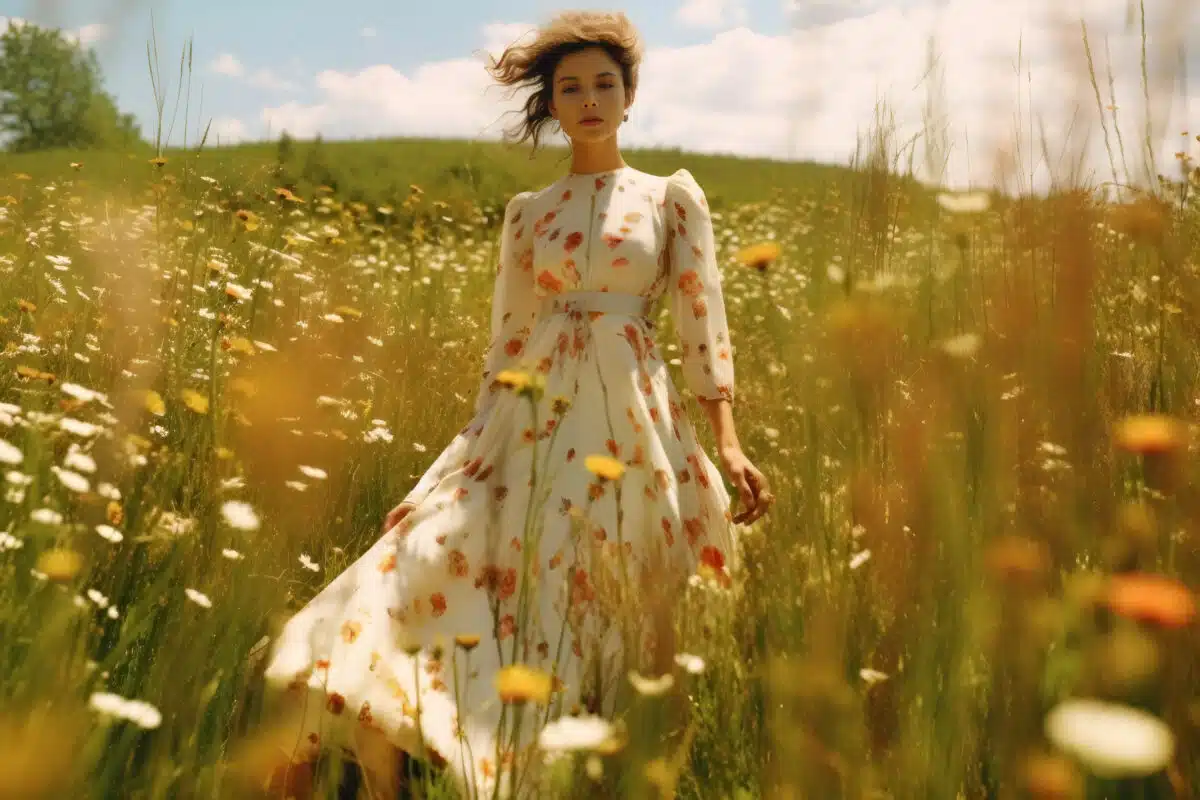
Poetry has this magical ability to transport us to incredible worlds, evoke intense emotions, and capture special moments in just a few lines.
With this thoughtfully curated collection of three-stanza poems, the possibilities are absolutely limitless!
Picture yourself in a sun-kissed meadow, where butterflies gracefully dance to the gentle rhythm of a breeze, or imagine the vast expanse of outer space, brimming with the vibrant energy of celestial bodies.
And of course, we can’t overlook the tender embrace of a loved one, where every whispered word becomes a verse in a symphony of love.
So come along with us on this captivating journey as we explore beautiful examples of three-stanza poems that will spark your imagination and leave you longing for more.
Let’s dig in!
My #1 Favorite Example of a 3 Stanza Poem

“Twin Stars Aloft” by Charles Kingsley
Twin stars, aloft in ether clear,
Around each other roll alway,
Within one common atmosphere
Of their own mutual light and day.
And myriad happy eyes are bent
Upon their changeless love alway;
As strengthened by their one intent,
They pour the flood of life and day.
So we, through this world’s waning night,
Shall, hand in hand, pursue our way;
Shed round us order, love, and light,
And shine unto the perfect day.
Why Is “Twin Stars Aloft” My Favorite Example of a 3 Stanza Poem

“Twin Stars Aloft” is truly special for me because it beautifully captures the essence of love and unity.
The poet’s words create vivid imagery that transports me to a tranquil night sky, where two stars shine together in perfect harmony.
Using space and celestial objects as symbols of a couple’s unwavering love is a powerful depiction of Kingsley’s love story.
This poem is timeless and resonates with many of us, serving as a reminder of the enduring nature of true love, even in the darkest times.
Indeed, this is the kind of love story we all yearn for!
Easy 3 Stanza Poems
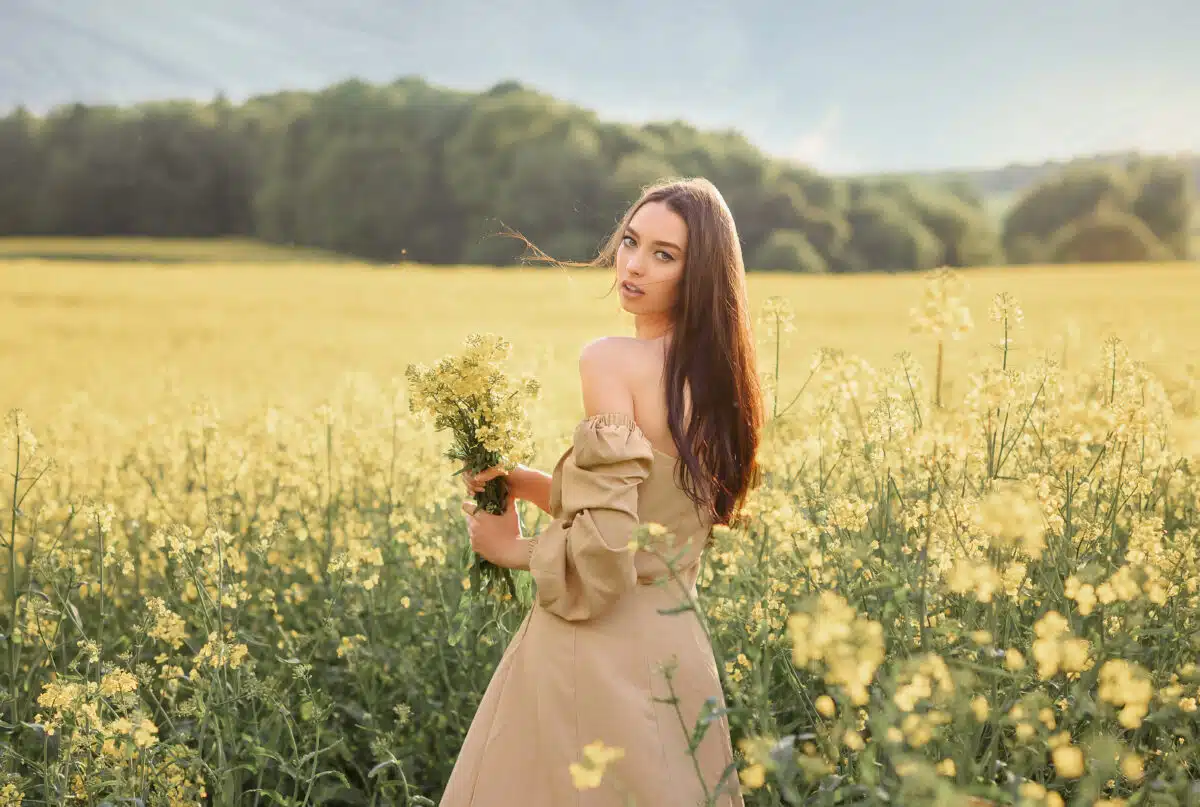
Delight in these simple yet captivating three-stanza poems from famous poets.
In just a few lines, experience a beautiful rhythm of meaningful verses about various themes, making these short poems a perfect choice for poetry newcomers.
“Wind-Flowers” by Christina G. Rossetti
‘Twist me a crown of wind- flowers;
That I may fly away
To hear the singers at their song,
And players at their play.’
‘Put on your crown of wind- flowers:
But whither would you go?’
‘Beyond the surging of the sea
And the storms that blow.’
‘Alas! your crown of wind- flowers
Can never make you fly:
I twist them in a crown to-day,
And to-night they die.’
“May-Flower” by Emily Dickinson
Pink, small, and punctual.
Aromatic, low,
Covert in April,
Candid in May,
Dear to the moss,
Known by the knoll,
Next to the robin
In every human soul.
Bold little beauty,
Bedecked with thee.
Nature forswears
Antiquity.
“I reason, earth is short” by Emily Dickinson
I reason, earth is short,
And anguish absolute.
And many hurt;
But what of that?
I reason, we could die:
The best vitality
Cannot excel decay;
But what of that?
I reason that in heaven
Somehow, it will be even,
Some new equation given;
But what of that?
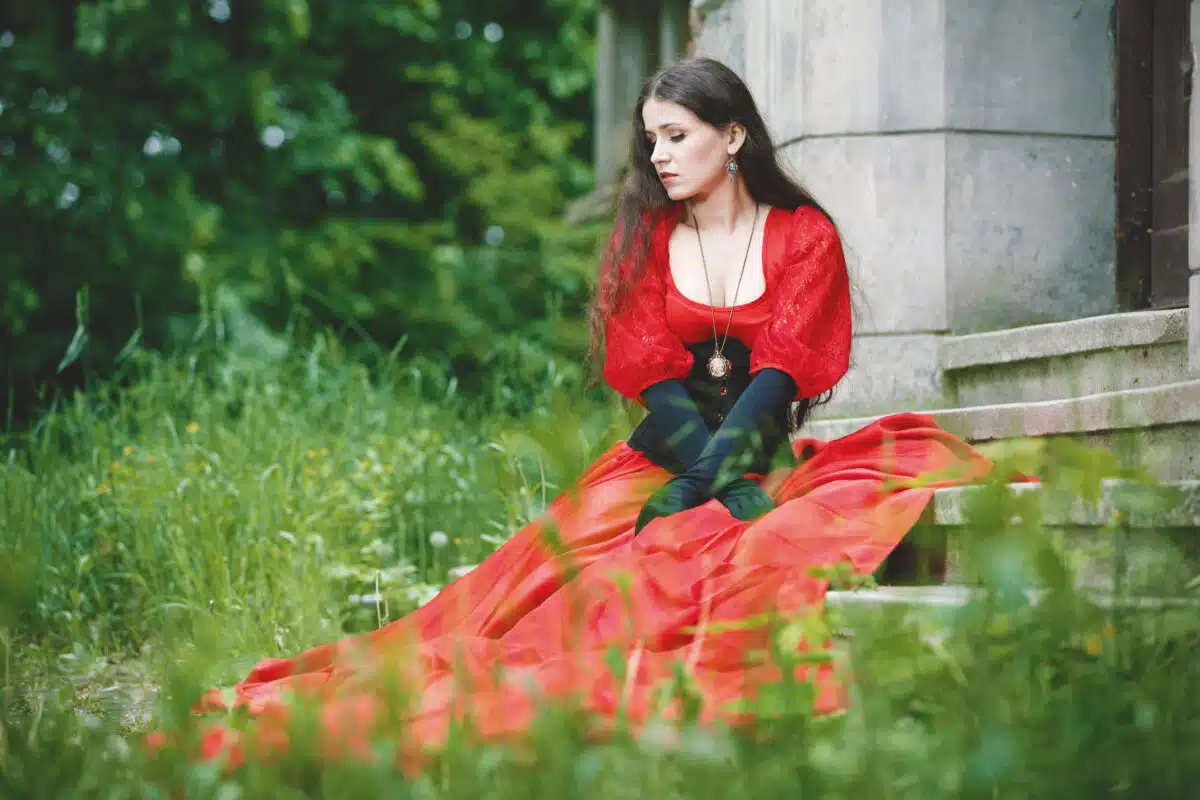
“A Service of Song” by Emily Dickinson
Some keep the Sabbath going to church;
I keep it staying at home,
With a bobolink for a chorister,
And an orchard for a dome.
Some keep the Sabbath in surplice;
I just wear my wings,
And instead of tolling the bell for church,
Our little sexton sings.
God preaches,—a noted clergyman,—
And the sermon is never long;
So instead of getting to heaven at last,
I’m going all along!
“Passer Mortuus Est” by Edna St. Vincent Millay
Death devours all lovely things;
Lesbia with her sparrow
Shares the darkness,—presently
Every bed is narrow.
Unremembered as old rain
Dries the sheer libation,
And the little petulant hand
Is an annotation.
After all, my erstwhile dear,
My no longer cherished,
Need we say it was not love,
Now that love is perished?
From “Songs of Love” by Heinrich Heine (Edgar Alfred Bowring, Translator)
Ask not what I have, my loved one,—
Ask me rather what I am;
For but little wealth I boast of,
But I’m gentle as a lamb.
Do not ask me how I’m living,
But for what, that ask of me;
For I live in want, and lonely,
Yet I live alone for thee.
Do not ask me of my pleasures,
Ask not of my bitter smart;
Pleasure ever flies his presence
Who doth own a broken heart.

“The Sea-Voyage” by Heinrich Heine (Edgar Alfred Bowring, Translator)
I leaning stood against the mast,
And told each wave of ocean;
Farewell, my beauteous fatherland!
My bark, how swift thy motion!
I pass’d my lovely mistress’ house,
The windows gleam’d all over;
But though I gazed and gazed and gazed,
No sign could I discover.
Ye tears, obscure not thus mine eyes
On this too-painful morrow;
My love-sick heart, O do not break
With overweight of sorrow!
“So bashful when I spied her” by Emily Dickinson
So bashful when I spied her,
So pretty, so ashamed!
So hidden in her leaflets,
Lest anybody find;
So breathless till I passed her,
So helpless when I turned
And bore her, struggling, blushing,
Her simple haunts beyond !
For whom I robbed the dingle,
For whom betrayed the dell,
Many will doubtless ask me,
But I shall never tell!
“On this long storm the rainbow rose” by Emily Dickinson
On this long storm the rainbow rose,
On this late morn the sun;
The clouds, like listless elephants,
Horizons straggled down.
The birds rose smiling in their nests,
The gales indeed were done ;
Alas ! how heedless were the eyes
On whom the summer shone !
The quiet nonchalance of death
No daybreak can bestir;
The slow archangel’s syllables
Must awaken her.

“Witch-Wife” by Edna St. Vincent Millay
She is neither pink nor pale,
And she never will be all mine;
She learned her hands in a fairy-tale,
And her mouth on a valentine.
She has more hair than she needs;
In the sun ’tis a woe to me!
And her voice is a string of coloured beads,
Or steps leading into the sea.
She loves me all that she can,
And her ways to my ways resign;
But she was not made for any man,
And she never will be all mine.
“I died for beauty, but was scarce” by Emily Dickinson
I died for beauty, but was scarce
Adjusted in the tomb,
When one who died for truth was lain
In an adjoining room.
He questioned softly why I failed ?
” For beauty,” I replied.
“And I for truth, the two are one ;
We brethren are, ” he said .
And so, as kinsmen met a night,
We talked between the rooms,
Until the moss had reached our lips,
And covered up our names.
“Travel” by Edna St. Vincent Millay
The railroad track is miles away,
And the day is loud with voices speaking,
Yet there isn’t a train goes by all day
But I hear its whistle shrieking.
All night there isn’t a train goes by,
Though the night is still for sleep and dreaming,
But I see its cinders red on the sky,
And hear its engine steaming.
My heart is warm with the friends I make,
And better friends I’ll not be knowing,
Yet there isn’t a train I wouldn’t take,
No matter where it’s going.

“Found” by Josephine Preston Peabody
Oh, when I saw your eyes,
So old it was, so new, the hushed surprise:
After a long, long search, it came to be,
Home folded me.
And looking up, I saw
The far, first stars like tapers to my awe,
In the dim hands of hid, benignant Powers,
At search long hours.
And did they hear us call,
That they have found us children after all?
And did you know , O Wonderful and Dear,
That I was here?
“The Last Invocation” by Walt Whitman
At the last, tenderly,
From the walls of the powerful fortress’d house,
From the clasp of the knitted locks, from the keep of the well-closed doors,
Let me be wafted.
Let me glide noiselessly forth;
With the key of softness unlock the locks—with a whisper,
Set ope the doors O soul.
Tenderly—be not impatient,
(Strong is your hold O mortal flesh,
Strong is your hold O love.)
“A Baby” by Madison Julius Cawein
Why speak of Rajah rubies,
And roses of the South?
I know a sweeter crimson
A baby’s mouth.
Why speak of Sultan sapphires
And violet seas and skies?
I know a lovelier azure
A baby’s eyes.
Go seek the wide world over!
Search every land and mart!
You ‘ll never find a pearl like this
A baby’s heart.

“A Wood-path” by Bliss Carman
At evening and at morning
By an enchanted way
I walk the world in wonder,
And have no word to say.
It is the path we traversed
One twilight, thou and I;
Thy beauty all a rapture,
My spirit all a cry.
The red leaves fall upon it,
The moon and mist and rain,
But not the magic footfall
That made its meaning plain.
“The Battle” by Madison Julius Cawein
Black clouds hung low and heavy,
Above the sunset glare ;
And in the garden dimly
We wandered here and there.
So full of strife, of trouble
The night was dark, afraid,
Like our own love, so merely
For tears and sighings made.
That when it came to parting,
And I must mount and go,
With all my soul I wished it
That God would lay me low.
3 Stanza Poems With 3 Lines
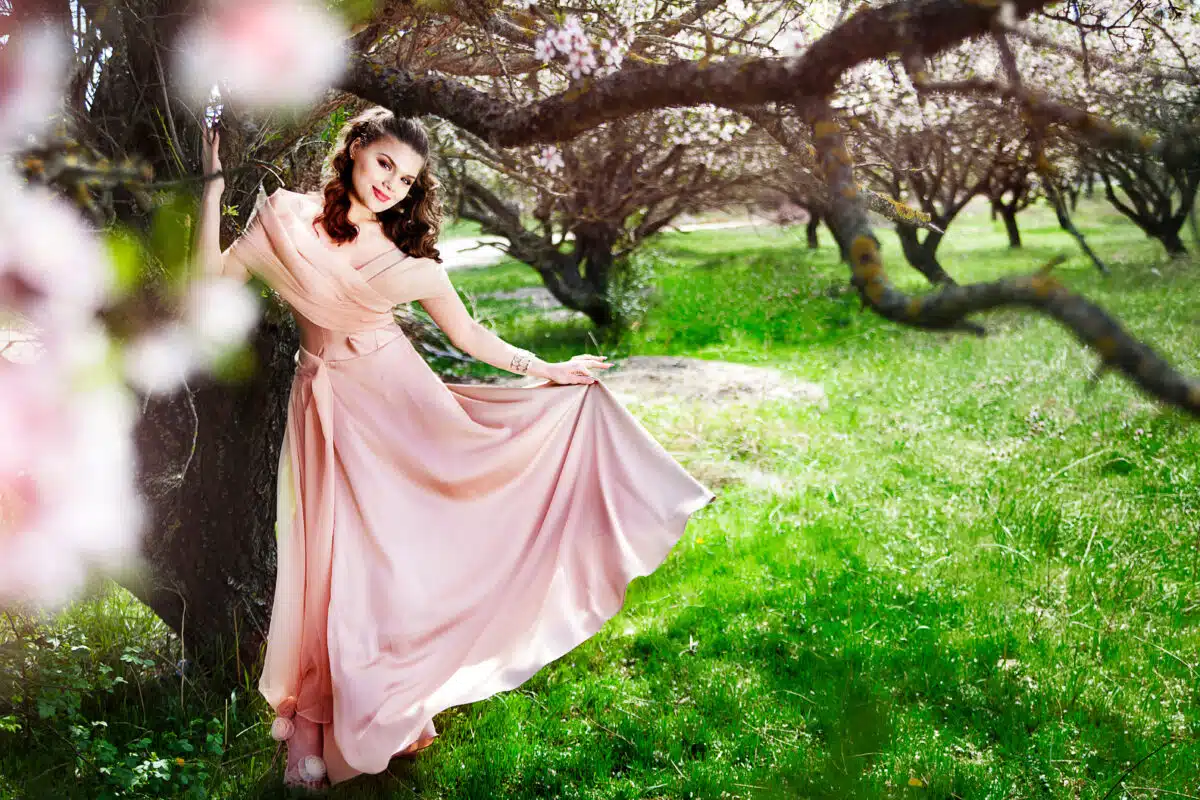
Discover how short three-stanza poems with three verses can strike at your heart with these enchanting tercets!
Enjoy the succinct yet eloquent lines from well-known poets, reminding us that a deep, meaningful message can sometimes hide behind a few words.
“The Secret” by Emily Dickinson
Some things that fly there be, —
Birds, hours, the bumble-bee:
Of these no elegy.
Some things that stay there be, –
Grief, hills, eternity:
Nor this behooveth me.
There are, that resting, rise.
Can I expound the skies?
How still the riddle lies!
“Daphne” by Edna St. Vincent Millay
Why do you follow me?—
Any moment I can be
Nothing but a laurel-tree.
Any moment of the chase
I can leave you in my place
A pink bough for your embrace.
Yet if over hill and hollow,
Still it is your will to follow,
I am off;—to heel, Apollo!
“The Heart” from the German
The heart hath chambers twain,
Wherein do dwell
Twin brothers, Joy and Pain.
When waketh Joy in one,
Still calmly
Pain slumbers in his own.
O, Joy, thy bliss restrain,
Speak softly,
Lest thou should’st waken Pain.
3 Stanza Poems With 4 Lines

Experience the enchanting harmony of brevity and depth in these three-stanza poems with four lines each.
Immerse yourself in a captivating world of dreams, love, heartache, and even fantasy with these evocative quatrains!
“Success” by Emily Dickinson
Success is counted sweetest
By those who ne’er succeed.
To comprehend a nectar
Requires sorest need.
Not one of all the purple host
Who took the flag to-day
Can tell the definition,
So clear, of victory,
As he, defeated, dying,
On whose forbidden ear
The distant strains of triumph
Break, agonized and clear.
“The Dream” by Heinrich Heine (Edgar Alfred Bowring, Translator)
A vision I dreamt of a lovely child.
She wore her hair in tresses;
In the blue nights of summer so calm and mild
We sat in the greenwood’s recesses.
In mutual rapture and torture we vied,
We loved and exchanged loving kisses;
The yellow stars in the heavens all sigh’d
And seem’d to envy our blisses.
I now am awake, and around me gaze
In the darkness, alone and despairing;
The stars in the heavens are shedding their rays
In silence and all-uncaring.
“To Daisies, Not To Shut So Soon” by Robert Herrick
Shut not so soon; the dull-ey’d night
Has not as yet begun
To make a seizure on the light,
Or to seal up the sun.
No marigolds yet closed are,
No shadows great appear ;
Nor doth the early shepherd’s star
Shine like a spangle here.
Stay but till my Julia close
Her life begetting eye;
And let the whole world then dispose
Itself to live or die.
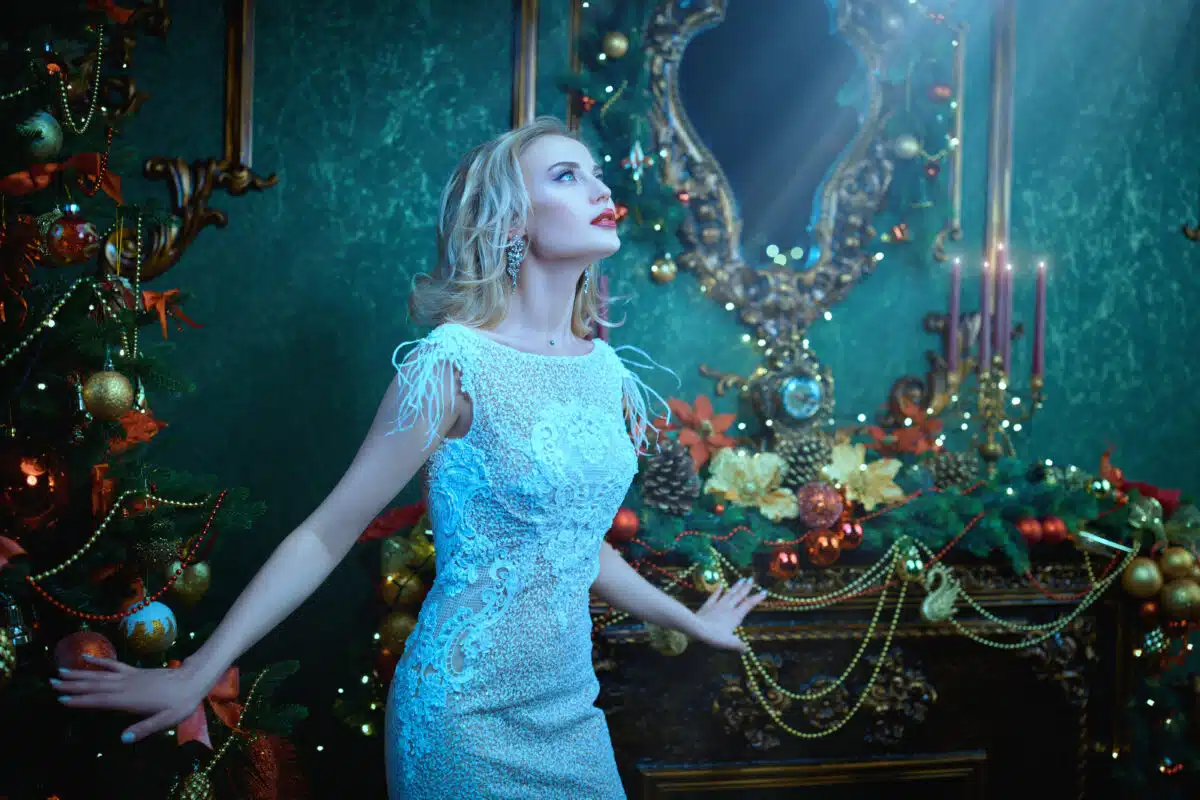
“Advent” by Christina G. Rossetti
‘Come,’ Thou dost say to Angels,
To blessed Spirits, ‘Come’:
‘Come,’ to the lambs of Thine own flock,
Thy little ones, ‘ Come home.’
‘Come,’ from the many-mansioned house
The gracious word is sent;
‘Come,’ from the ivory palaces
Unto the Penitent.
O Lord, restore us deaf and blind,
Unclose our lips though dumb:
Then say to us, ‘I come with speed,’
And we will answer, ‘Come.’
“A wounded deer leaps highest” by Emily Dickinson
A wounded deer leaps highest,
I’ve heard the hunter tell;
‘Tis but the ecstasy of death,
And then the brake is still.
The smitten rock that gushes,
The trampled steel that springs:
A cheek is always redder
Just where the hectic stings!
Mirth is the mail of anguish,
In which it cautious arm,
Lest anybody spy the blood
And “You’re hurt” exclaim!
“Withering” by Christina G. Rossetti
Fade, tender lily,
Fade, O crimson rose,
Fade every flower,
Sweetest flower that blows.
Go, chilly autumn,
Come, O winter cold;
Let the green stalks die away
Into common mould.
Birth follows hard on death,
Life on withering:
Hasten, we will come the sooner
Back to pleasant spring.

“Afternoon on a Hill” by Edna St. Vincent Millay
I will be the gladdest thing
Under the sun!
I will touch a hundred flowers
And not pick one.
I will look at cliffs and clouds
With quiet eyes,
Watch the wind bow down the grass,
And the grass rise.
And when lights begin to show
Up from the town,
I will mark which must be mine,
And then start down.
“Exclusion” by Emily Dickinson
The soul selects her own society,
Then shuts the door;
On her divine majority
Obtrude no more.
Unmoved, she notes the chariot’s pausing
At her low gate;
Unmoved, an emperor is kneeling
Upon her mat.
I’ve known her from an ample nation
Choose one;
Then close the valves of her attention
Like stone.
“Walking Flowers At Berlin” by Heinrich Heine (Edgar Alfred Bowring, Translator)
Yes! under the lindens, my dear friend,
Thy yearnings may satisfied be;
The fairest of womankind here, friend,
All walking together, thou’lt see.
How charming they look, how delicious,
In gay silken garments all dress’d!
A certain poet judicious
“Walking flowers” has named them in jest.
How very charming each bonnet!
Each Turkish shawl, how it gleams!
Each cheek, what a bright glow upon it!
Each neck, how swanlike it seems!
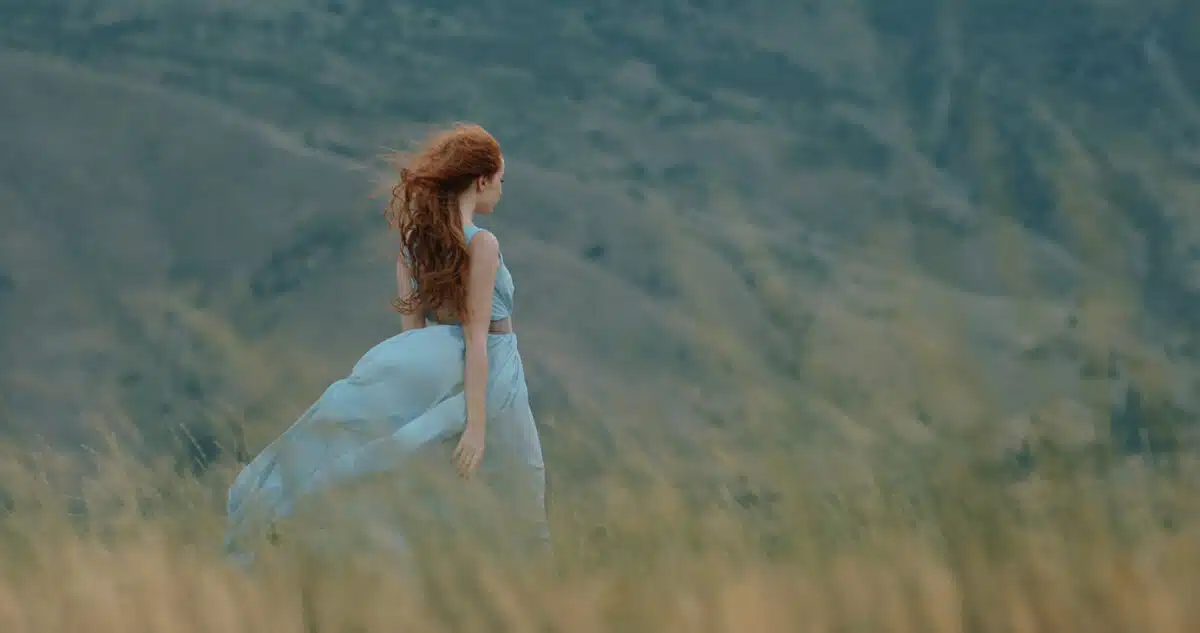
“Ashes of Life” by Edna St. Vincent Millay
Love has gone and left me and the days are all alike;
Eat I must, and sleep I will,—and would that night were here!
But ah!—to lie awake and hear the slow hours strike!
Would that it were day again!—with twilight near!
Love has gone and left me and I don’t know what to do;
This or that or what you will is all the same to me;
But all the things that I begin I leave before I’m through,—
There’s little use in anything as far as I can see.
Love has gone and left me,—and the neighbours knock and borrow,
And life goes on forever like the gnawing of a mouse,—
And to-morrow and to-morrow and to-morrow and to-morrow
There’s this little street and this little house.
“To fight aloud is very brave” by Emily Dickinson
To fight aloud is very brave,
But gallanter, I know,
Who charge within the bosom,
The cavalry of woe.
Who win, and nations do not see,
Who fall, and none observe,
Whose dying eyes no country
Regards with patriot love.
We trust, in plumed procession,
For such the angels go,
Rank after rank, with even feet
And uniforms of snow.
“The Wife” by Emily Dickinson
She rose to his requirement, dropped
The playthings of her life
To take the honorable work
Of woman and of wife.
If aught she missed in her new day
Of amplitude, or awe,
Or first prospective, or the gold
In using wore away,
It lay unmentioned, as the sea
Develops pearl and weed,
But only to himself is known
The fathoms they abide.

“The lotos flower is troubled” by Heinrich Heine (Edgar Alfred Bowring, Translator)
The lotos flower is troubled
At the sun’s resplendent light
With sunken head and sadly
She dreamily waits for the night.
The moon appears as her wooer,
She wakes at his fond embrace;
For him she kindly uncovers
Her sweetly flowering face.
She blooms and glows and glistens,
And mutely gazes above;
She weeps and exhales and trembles
With love and the sorrows of love.
“To the Not Impossible Him” by Edna St. Vincent Millay
How shall I know, unless I go
To Cairo and Cathay,
Whether or not this blessed spot
Is blest in every way?
Now it may be, the flower for me
Is this beneath my nose;
How shall I tell, unless I smell
The Carthaginian rose?
The fabric of my faithful love
No power shall dim or ravel
Whilst I stay here,—but oh, my dear,
If I should ever travel!
“Proof” by Emily Dickinson
That I did always love,
I bring thee proof:
That till I loved
I did not love enough.
That I shall love alway,
I offer thee
That love is life,
And life hath immortality.
This, dost thou doubt, sweet?
Then have I
Nothing to show
But Calvary.
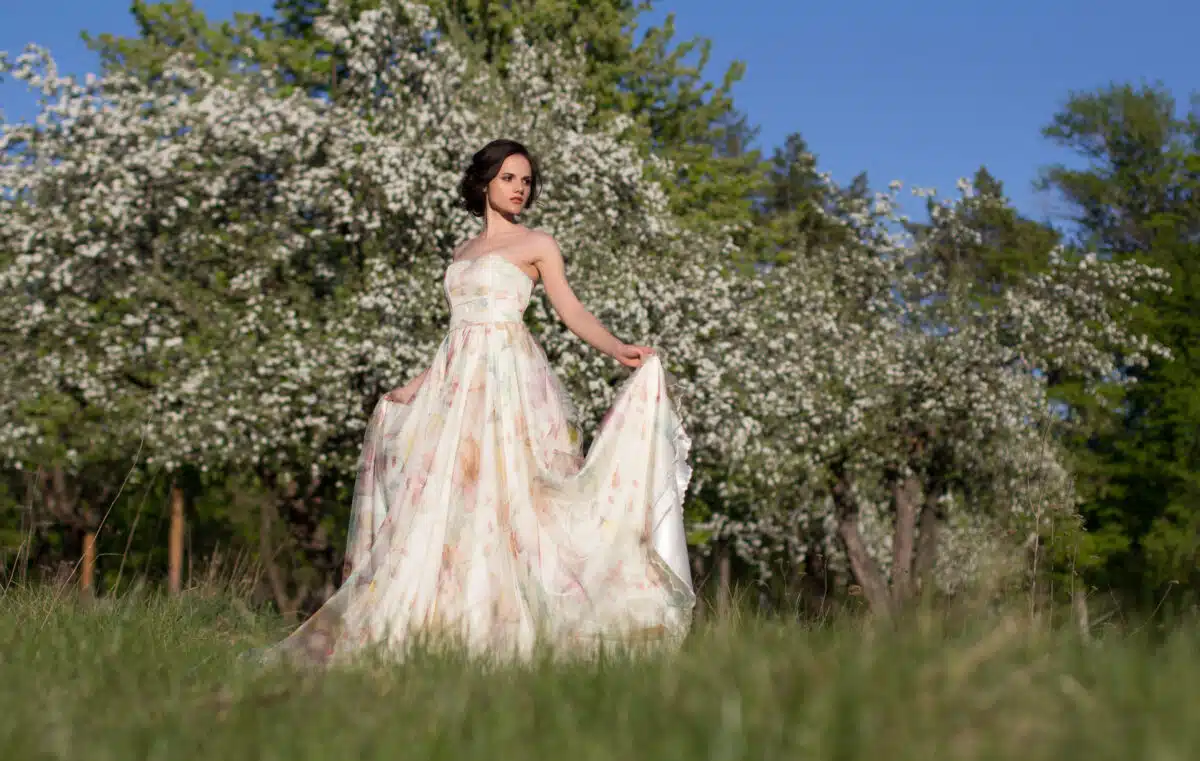
“Two Worlds” by Emily Dickinson
It makes no difference abroad,
The seasons fit the same,
The mornings blossom into noons,
And split their pods of flame.
Wild-flowers kindle in the woods,
The brooks brag all the day;
No blackbird bates his jargoning
For passing Calvary.
Auto-da-fé and judgment
Are nothing to the bee;
His separation from his rose
To him seems misery.
“Feast” by Edna St. Vincent Millay
I drank at every vine.
The last was like the first.
I came upon no wine
So wonderful as thirst.
I gnawed at every root.
I ate of every plant.
I came upon no fruit
So wonderful as want.
Feed the grape and bean
To the vintner and monger;
I will lie down lean
With my thirst and my hunger.
“Safe in their alabaster chambers” by Emily Dickinson
Safe in their alabaster chambers,
Untouched by morning and untouched by noon,
Sleep the meek members of the resurrection,
Rafter of satin, and roof of stone.
Light laughs the breeze in her castle of sunshine ;
Babbles the bee in a stolid ear ;
Pipe the sweet birds in ignorant cadence, –
Ah, what sagacity perished here !
Grand go the years in the crescent above them ;
Worlds scoop their arcs, and firmaments row,
Diadems drop and Doges surrender,
Soundless as dots on a disk of snow.
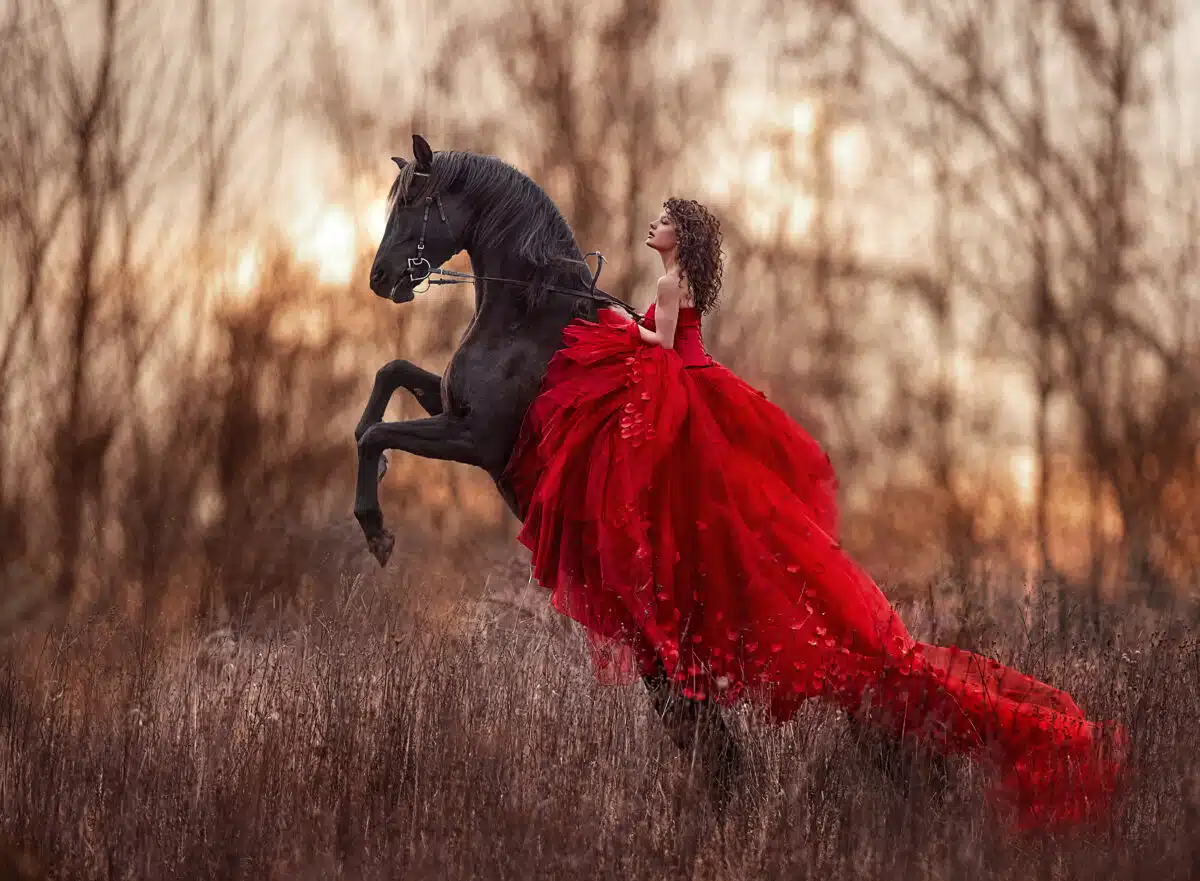
“The Return From Town” by Edna St. Vincent Millay
As I sat down by Saddle Stream
To bathe my dusty feet there,
A boy was standing on the bridge
Any girl would meet there.
As I went over Woody Knob
And dipped into the hollow,
A youth was coming up the hill
Any maid would follow.
Then in I turned at my own gate,–
And nothing to be sad for–
To such a man as any wife
Would pass a pretty lad for.
“City Trees” by Edna St. Vincent Millay
The trees along this city street,
Save for the traffic and the trains,
Would make a sound as thin and sweet
As trees in country lanes.
And people standing in their shade
Out of a shower, undoubtedly
Would hear such music as is made
Upon a country tree.
Oh, little leaves that are so dumb
Against the shrieking city air,
I watch you when the wind has come—
I know what sound is there.
“From The Chrysalis” by Emily Dickinson
My cocoon tightens, colors tease,
I’m feeling for the air;
A dim capacity for wings
Degrades the dress I wear.
A power of butterfly must be
The aptitude to fly,
Meadows of majesty concedes
And easy sweeps of sky.
So I must baffle at the hint
And cipher at the sign,
And make much blunder, if at last
I take the clew divine.
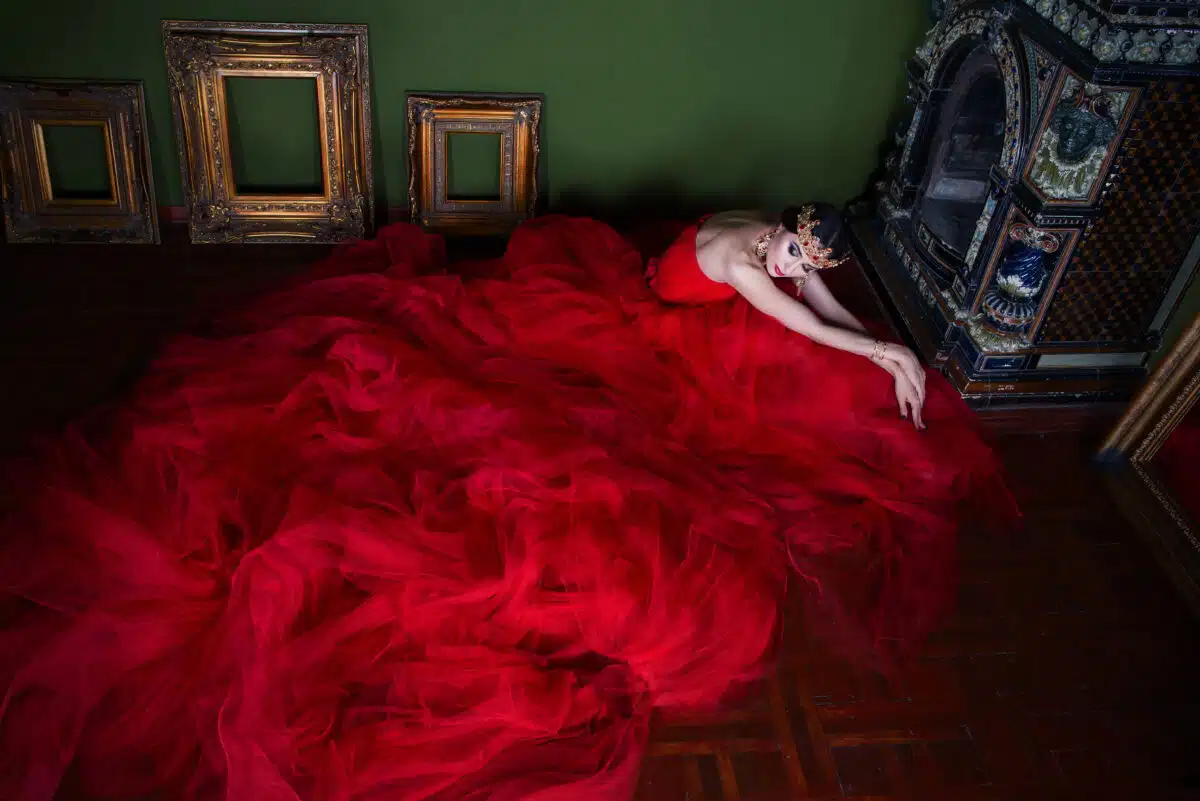
“A Parody” by Heinrich Heine (Edgar Alfred Bowring, Translator)
Indeed they have wearied me greatly,
And made me exceedingly sad,
One half with their prose so wretched,
The other with poetry bad.
Their terrible discord has scatter’d
What little senses I had,
One half with their prose so wretched,
The other with poetry bad.
But ’mongst the whole army of scribblers,
They most have stirr’d up my bile,
Who write in neither prosaic
Nor true poetical style.
“Oh, The Burden, The Burden Of Love Ungiven” by Grace Fallow Norton
Oh, the burden , the burden of love ungiven,
The weight of laughter unshed,
Oh, heavy caresses, unblown tendernesses,
Oh, love -words unsung and unsaid.
Oh, the burden , the burden of love unspoken,
The cramp of silence close -furled,
To lips that would utter, to hands that would scatter
Love’s seed on the paths of the world.
Oh, the heavy burden of love ungiven:
My breast doth this burden bear;
Deep in my bosom the unblown blossom
My world – love that withers there.
“Choice” by Emily Dickinson
Of all the souls that stand create
I have elected one.
When sense from spirit flies away,
And subterfuge is done;
When that which is and that which was
Apart, intrinsic, stand,
And this brief tragedy of flesh
Is shifted like aa sand;
When figures show their royal front
And mists are carved away,
Behold the atom I preferred
To all the lists of clay!
3 Stanza Poems With 5 Lines
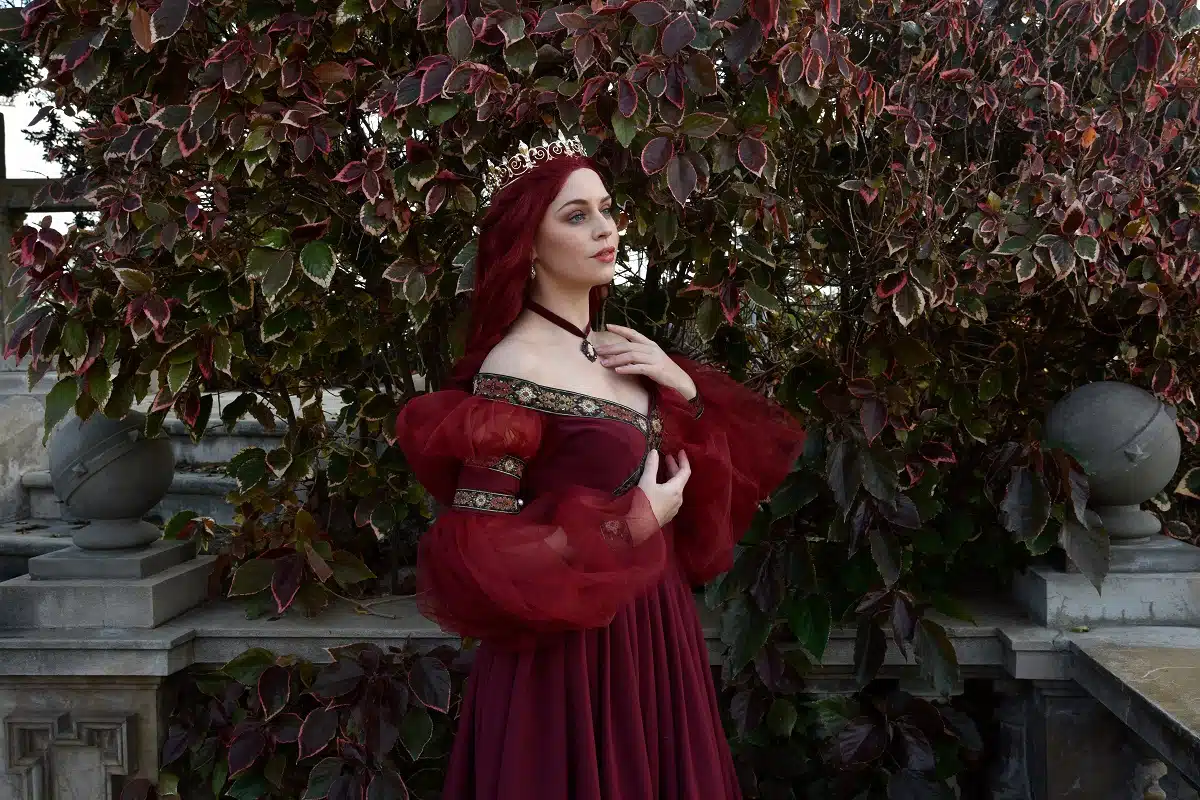
Get ready to dream, fall in love, and travel back in time with these amazing three-stanza quintains from times long past.
Bring your visions and fantasies to life as you immerse yourself in these short yet unforgettable works that are sure to leave a lasting impression.
“To—” by Percy Bysshe Shelley
I.
When passion’s trance is overpast,
If tenderness and truth could last
Or live, whilst all wild feelings keep
Some mortal slumber, dark and deep,
I should not weep, I should not weep!
II.
It were enough to feel, to see
Thy soft eyes gazing tenderly,
And dream the rest-and burn and be
The secret food of fires unseen,
Couldst thou but be as thou hast been.
III.
After the slumber of the year
The woodland violets re- appear,
All things revive in field or grove
And sky and sea, but two, which move
And form all others, life and love.
“Why?” by Emily Dickinson
The murmur of a bee
A witchcraft yieldeth me.
If any ask me why,
‘Twere easier to die
Than tell.
The red upon the hill
Taketh away my will;
If anybody sneer,
Take care, for God is here,
That’s all.
The breaking ofthe day
Addeth to my degree;
If any ask me how,
Artist, who drew me so,
Must tell!
“The Blue Heron” by Bliss Carman
I see the great blue heron
Rising among the reeds
And floating down the wind,
Like a gliding sail
With the set of the stream.
I hear the two-horse mower
Clacking among the hay,
In the heat of a July noon,
And the driver’s voice
As he turns his team.
I see the meadow lilies
Flecked with their darker tan,
The elms, and the great white clouds;
And all the world
Is a passing dream.

“Rest” by Irene Rutherford McLeod
As a little child I come
To be gathered to your breast
So tired that my lips are dumb,
So sad that my warm heart is numb:
Beloved, let me rest.
Oh, how all the noises die,
All the cruel voices cease ,
I can sleep when you are by,
And I am too faint to cry:
Here at last is peace.
Hold me, nurse me, love me… So …
Almost I could learn to weep!
Hush, I feel my spirit grow …
When you tire… let me go …
I shall be … asleep.
“Love Song” by Harriet Monroe
I love my life, but not too well
To give it to thee like a flower,
So it may pleasure thee to dwell
Deep in its perfume but an hour.
I love my life, but not too well.
I love my life, but not too well
To sing it note by note away,
So to thy soul the song may tell
The beauty of the desolate day.
I love my life, but not too well.
I love my life, but not too well
To cast it like a cloak on thine,
Against the storms that sound and swell
Between thy lonely heart and mine.
I love my life, but not too well.
“Ebb Tide” by S. F. Potter
The tide slips from the harbour’s mouth,
The rugged reefs stretch far away,
The tangled grasses lightly sway,
And a faint odour of the south
Comes stealing in across the bay.
The ships, like phantoms, lie asleep;
They wait the turning of the tide,
And ere the dawn will safely glide
To the broad bosom of the deep,
Beyond the surf’s unceasing chide.
When in our hearts the tide is low,
When blackened reefs of old despair
Rise to our view, we need not care;
The tide returns; at morn we go
To sunlit seas and skies more fair.

“Summer Storm” by Bliss Carman
The hilltop trees are bowing
Under the coming of storm.
The low, gray clouds are trailing
Like squadrons that sweep and form,
With their ammunition of rain.
Then the trumpeter wind gives signal
To unlimber the viewless guns;
The cattle huddle together;
Indoors the farmer runs;
And the first shot lashes the pane.
They charge through the quiet orchard;
One pear tree is snapped like a wand;
As they sweep from the shattered hillside,
Ruffling the blackened pond,
Ere the sun takes the field again.
“The Old Affection” by M. P. Pendleton
Down comes the whirling, drifting snow,
And hides the frozen earth from view;
One last tuft of grass, still through
The deep’ning mass sways to and fro—
Old tenant buried nowby new.
Alone to-day in this old house,
I watch the storm, with head bent low;
And see, with saddened eyes, there grow
Around that tuft which cold winds rouse,
Dread symbol ofa promised woe.
Dear friend, my thoughts fly out to you,
And frame this wish that burns me so;
Keep ever for me as I go,
The old affection; still be true
To one whose love no change can know.
“Home Song” by Henry Wadsworth Longfellow
Stay, stay at home, my heart, and rest;
Home-keeping hearts are happiest,
For those that wander they know not where
Are full of trouble and full of care:
To stay at home is best.
Weary, and homesick, and distressed,
They wander east, they wander west,
And are baffled, and beaten, and blown about
By the winds of the wilderness of doubt:
To stay at home is best.
Then stay at home, my heart, and rest;
The bird is safest in its nest;
O’er all that flutter their wings and fly
A hawk is hovering in the sky:
To stay at home is best.
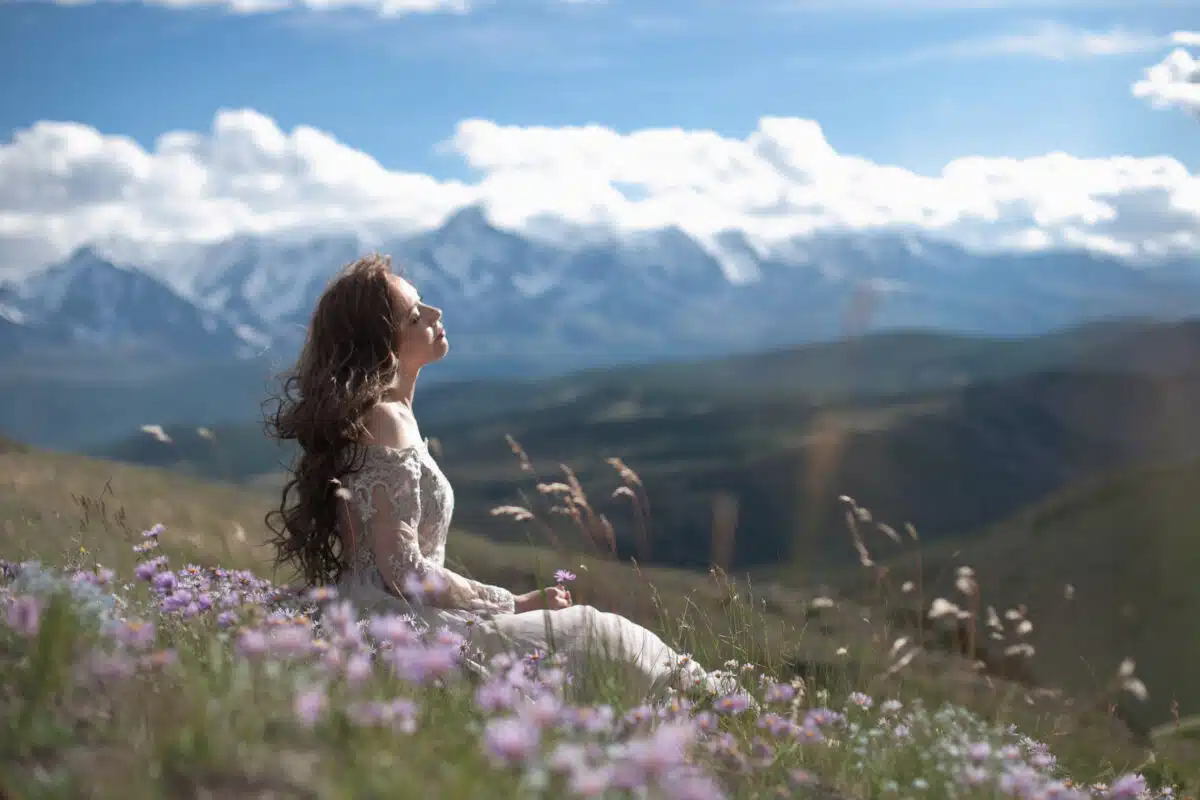
“The Princess” by Bjørnstjerne Bjørnson (Nathan Haskell Dole, Translator)
The Princess sat lone in her maiden bower,
The lad blew his horn at the foot of the tower.
“Why playest thou alway? Be silent, I pray,
It fetters my thoughts that would flee far away.
As the sun goes down.”
In her maiden bower sat the Princess forlorn,
The lad had ceased to play on his horn.
“Oh, why art thou silent? I beg thee to play!
It gives wings to my thought that would flee far away,
As the sun goes down.”
In her maiden bower sat the Princess forlorn,
Once more with delight played the lad on his horn.
She wept as the shadows grew long, and she sighed:
“Oh, tell me, my God, what my heart doth betide,
Now the sun has gone down.”
“What Should A Body Do?” by Marie de Laborde
What should a body do, I trow-
Sic a young rogue as Sandy,
Across the kirk wi’ een o’ blue,
He looks at me wi’ loe sae true–
What should a body do?
Yon kirk is cauld, the sermon lang,
But a’ my thocht’s for Sandy,
Wha waits for me wi’ heart sae true-
There’s not his like the wide world thro’
What should a body do?
“My ain dear Mary, gang wi’ me
Far away,” said my Sandy,
Yea, yea, my love, an’ we’ll e’er be true,
Tho’ our lot be sma’ an’ our flocks be few-
What should a body do?
“Why So Wan And Pale?” by Sir John Suckling
Why SO pale and wan, fond lover?
Prithee, why so pale?
Will, when looking well can’t move her,
Looking ill prevail?
Prithee, why so pale?
Why so dull and mute, young sinner?
Prithee, why so mute?
Will, when speaking well can’t win her,
Saying nothing do’t?
Prithee, why so mute ?
Quit, quit for shame; this will not move:
This cannot take her;
If of herself she will not love
Nothing can make her;
The devil take her.
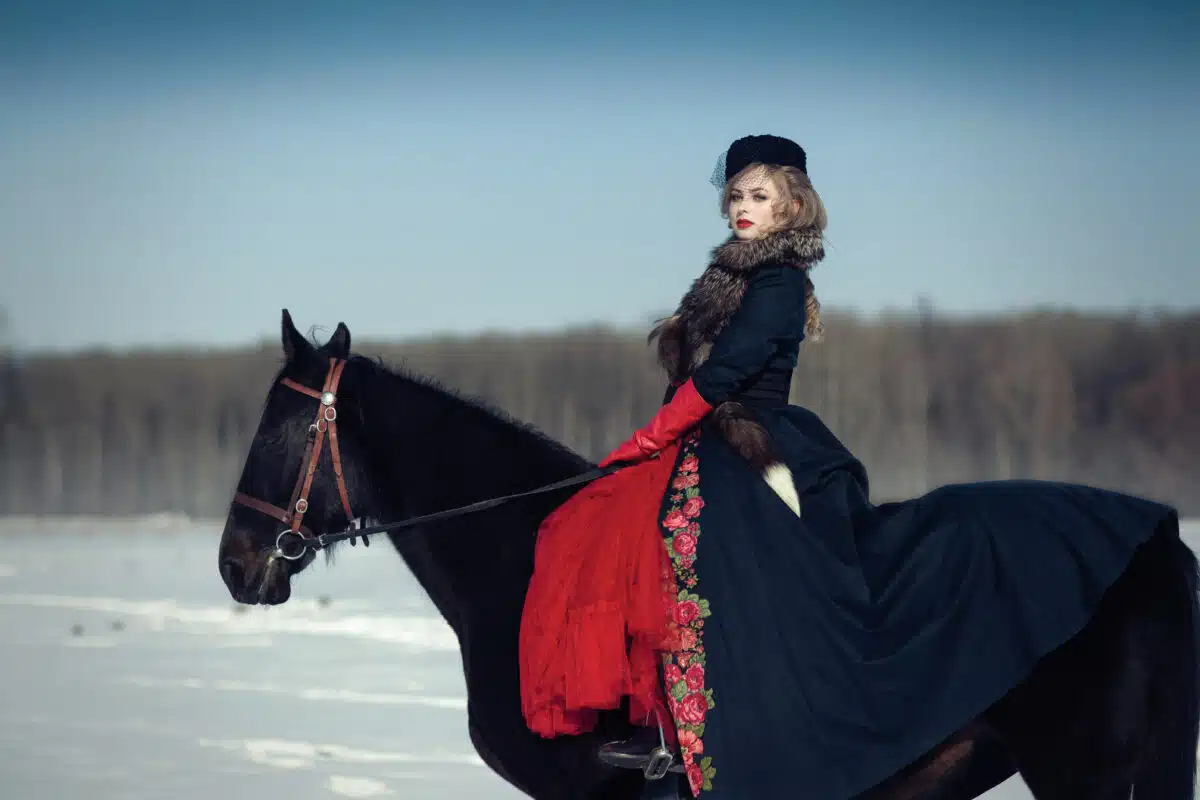
“The Traveller” by Bliss Carman
Before the night-blue fades
And the stars are quite gone,
I lift my head
At the noiseless tread
Of the angel of dawn.
I hear no word, yet my heart
Is beating apace;
Then in glory all still
On the eastern hill
I behold his face.
All day through the world he goes,
Making glad, setting free;
Then his day’s work done,
On the galleon sun
He sinks in the sea.
“The Good Great Man” by Samuel Taylor Coleridge
How seldom, Friend! a good great man inherits
Honor or wealth with all his worth and pains!
It sounds like stories from the land of spirits.
If any man obtain that which he merits,
Or any merit that which he obtains.
For shame, dear Friend; renounce this canting strain!
What wouldst thou have a good great man obtain?
Place—titles—salary—a gilded chain—
Or throne of corses which his sword has slain?
Greatness and goodness are not means, but ends!
Hath he not always treasures, always friends,
The good great man? three treasures,—love, and light,
And calm thoughts, regular as infant’s breath;
And three firm friends, more sure than day and night—
Himself, his Maker, and the angel Death.
3 Stanza Poems About Life

Experience a kaleidoscopic realm of human experience, growth, and struggle through these amazing three-stanza poems about life.
Be moved and inspired by the power of words from our beloved poets of long ago and rediscover the beauty found in everyday moments.
“Time Long Past” by Percy Bysshe Shelley
Like the ghost of a dear friend dead
Is Time long past.
A tone which is now forever fled,
A hope which is now forever past,
A love so sweet it could not last,
Was Time long past.
There were sweet dreams in the night
Of Time long past:
And, was it sadness or delight,
Each day a shadow onward cast
Which made us wish it yet might last—
That Time long past.
There is regret, almost remorse,
For Time long past.
‘Tis like a child’s belovèd corse
A father watches, till at last
Beauty is like remembrance, cast
From Time long past.
“Afraid? Of whom am I afraid?” by Emily Dickinson
Afraid? Of whom am I afraid?
Not death; for who is he?
The porter of my father’s lodge
As much abasheth me.
Of life? ‘T were odd I fear a thing
That comprehendeth me
In one or more existences
At Deity’s decree.
Of resurrection? Is the east
Afraid to trust the morn
With her fastidious forehead?
As soon impeach my crown!
“His Lachrime; Or, Mirth Turn’d To Mourning” by Robert Herrick
Call me no more,
As heretofore,
The music of a feast;
Since now, alas!
The mirth that was
In me, is dead or ceas’d.
Before I went
To banishment,
Into the loathed West,
I could rehearse
A lyric verse,
And speak it with the best.
But time, Ai me!
Has laid, I see,
My organ fast asleep;
And turn’d my voice
Into the noise
Of those that sit and weep.
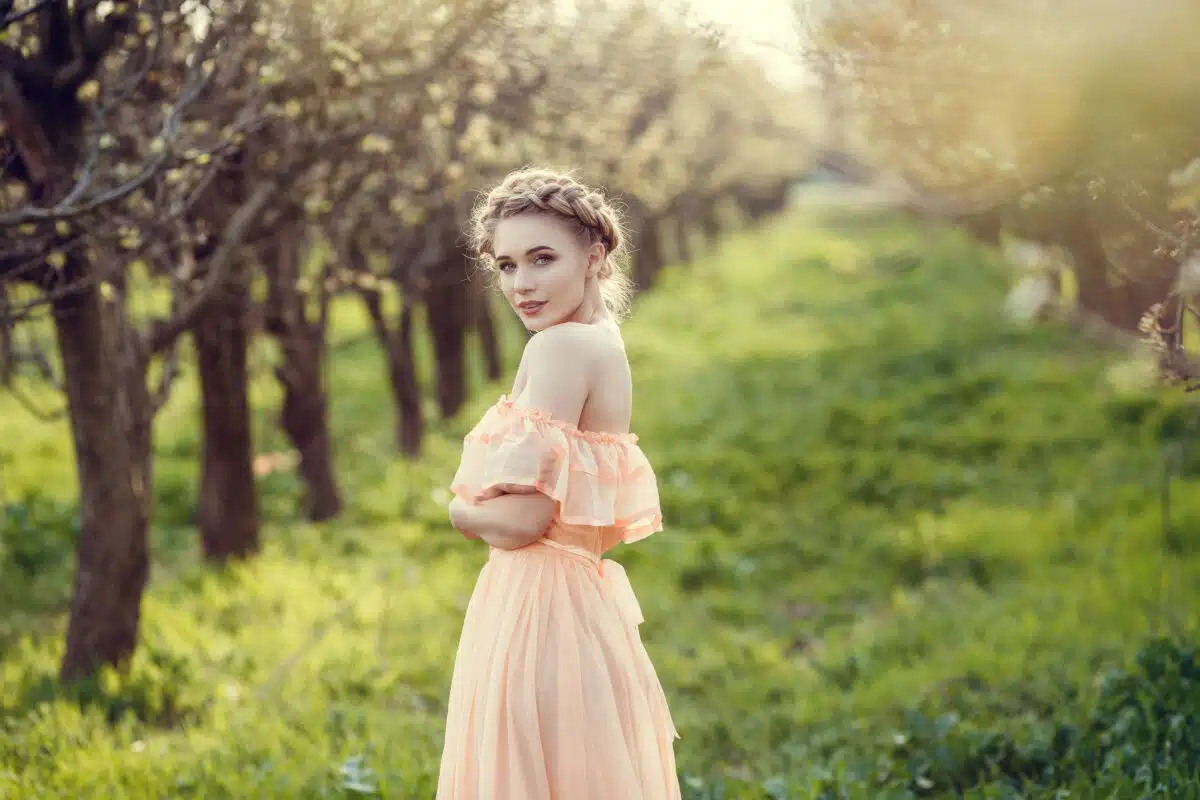
“If You Are Wise” by Ella Wheeler Wilcox
Don’t look for the flaws as you go through life:
And even when you find them
It is wise and kind to be somewhat blind
And look for the virtue behind them.
For the cloudiest night has a hint of light
Somewhere in its shadows hiding ;
It is better by far to hunt for a star
Than the spots on the sun abiding.
The current of life runs ever away
To the bosom of God’s great ocean.
Don’t set your force ‘ gainst the river’s course
And think to alter its motion.
Don’t waste a curse on the universe-
Remember, it lived before you.
Don’t butt at the storm with your puny form-
But bend and let it go o’er you.
The world will never adjust itself
To suit your whims to the letter.
Some things must go wrong your whole life long,
And the sooner you know it the better.
It is folly to fight with the Infinite,
And go under at last in the wrestle.
The wiser man shapes into God’s plan
As the water shapes into a vessel.
“At The End Of The Road” by Madison Julius Cawein
This is the truth as I see it, my dear,
Out in the wind and the rain:
They who have nothing have little to fear,—
Nothing to lose or to gain.
Here by the road at the end o’ the year,
Let us sit down and drink o’ our beer,
Happy-Go-Lucky and her cavalier,
Out in the wind and the rain.
Now we are old, oh isn’t it fine
Out in the wind and the rain?
Now we have nothing why snivel and whine? –
What would it bring us again? –
When I was young I took you like wine,
Held you and kissed you and thought you divine –
Happy-Go-Lucky, the habit’s still mine,
Out in the wind and the rain.
Oh, my old Heart, what a life we have led,
Out in the wind and the rain!
How we have drunken and how we have fed!
Nothing to lose or to gain! –
Cover the fire now; get we to bed.
Long was the journey and far has it led:
Come, let us sleep, lass, sleep like the dead,
Out in the wind and the rain.
“The Rainy Day” by Henry Wadsworth Longfellow
The day is cold, and dark, and dreary;
It rains, and the wind is never weary;
The vine still clings to the moldering wall,
But at every gust the dead leaves fall,
And the day is dark and dreary.
My life is cold, and dark, and dreary;
It rains, and the wind is never weary;
My thoughts still cling to the moldering Past,
But the hopes of youth fall thick in the blast,
And the days are dark and dreary.
Be still, sad heart! and cease repining;
Behind the clouds is the sun still shining;
Thy fate is the common fate of all,
Into each life some rain must fall,
Some days must be dark and dreary.
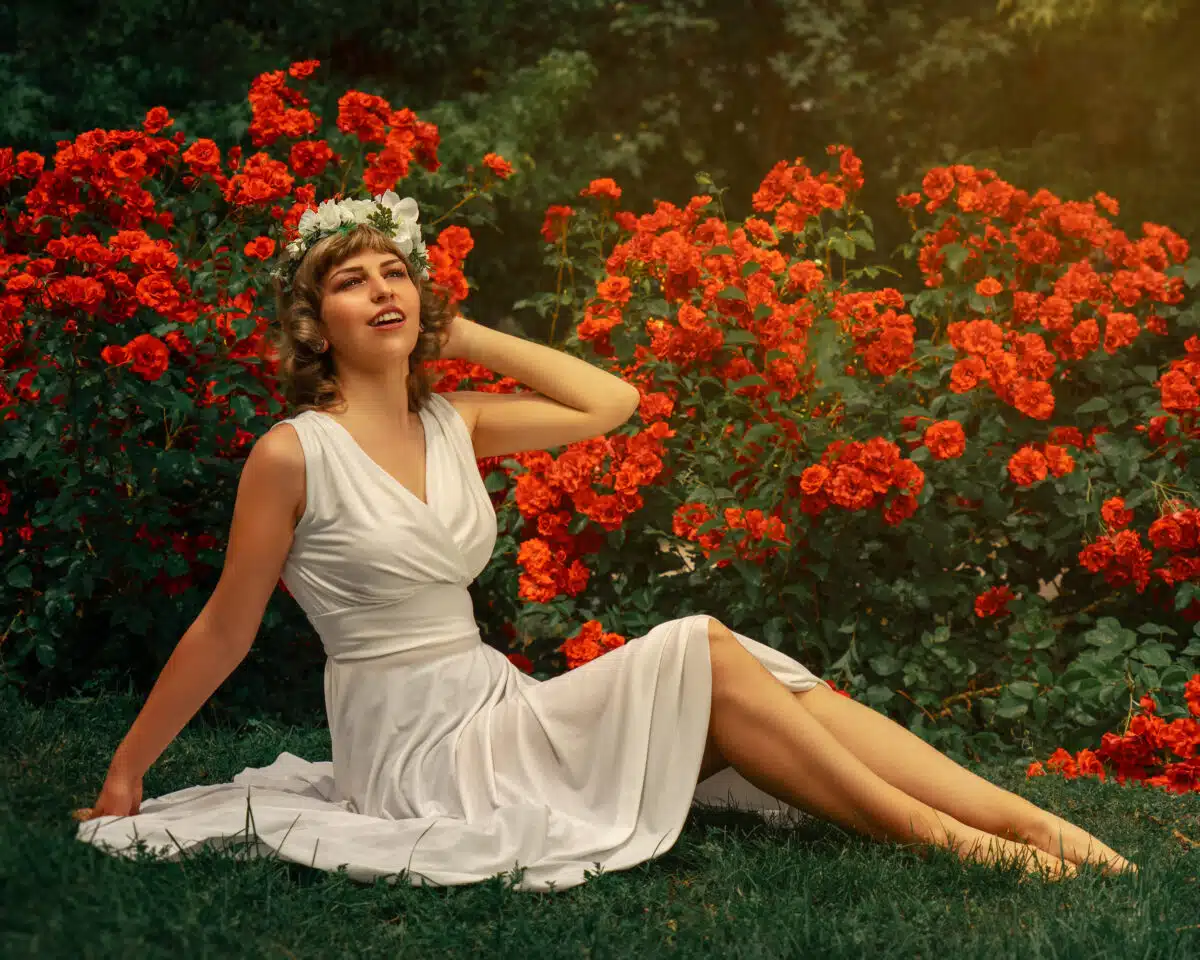
“The Garden of Dreams” by Bliss Carman
My heart is a garden of dreams
Where you walk when day is done,
Fair as the royal flowers,
Calm as the lingering sun.
Never a drouth comes there,
Nor any frost that mars,
Only the wind of love
Under the early stars,—
The living breath that moves
Whispering to and fro,
Like the voice of God in the dusk
Of the garden long ago.
“Life” by Bryan Waller Procter (Barry Cornwall)
We are born; we laugh; we weep;
We love; we droop; we die!
Ah! wherefore do we laugh or weep?
Why do we live or die?
Who knows that secret deep?
Alas not I!
Why doth the violet spring
Unseen by human eye?
Why do the radiant seasons bring
Sweet thoughts that quickly fly?
Why do our fond hearts cling
To things that die?
We toil—through pain and wrong;
We fight—and fly;
We love; we lose; and then, ere long,
Stone-dead we lie,
O life! is all thy song
“Endure and—die?”
